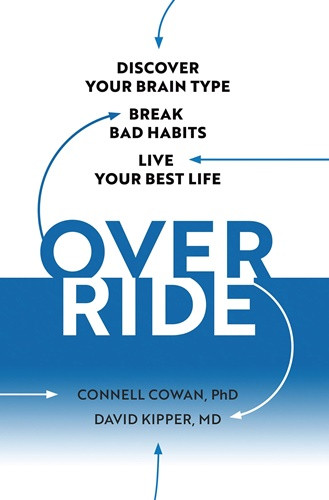Useful Links
Override: Discover Your Brain Type, Why You Do What You Do, and How to Do it Better

Think you already own your brain? Think again. Your brain owns you. It pushes you around and insists upon getting its way, not yours. Rather than having your best interests in mind, your brain has its own very specific agendas and strategies the purpose of which is singular—to make it feel good. It doesn’t care that its goals are often at stark variance with your intentions or what you know is healthy and constructive in your life. Your brain is selfish, demanding, and devious.
But it doesn’t have to be this way.
Override introduces a new two-pronged theory of personality: serotonin types and dopamine types. Based on today’s breakthrough science into neurotransmitters—the chemicals that transmit signals through our nervous system—Override show readers how to recognize their own chemical imbalances, and what to do about them.
One of the key parts of developing these strategies is understanding the ways serotonin and dopamine are supposed to work, and which type you fall under. Equipped with this new information, the reader will learn to recognize and reshape their reflexive behavior and develop intentional self-control. With this book, nobody is doomed to remain trapped by their natural tendencies!
Override details the struggles of people, both D- and S-Types, and show how together with them the authors found a path to change that can start this minute and last a lifetime. Complete with easy-to-use questionnaires, strategies, and exercises, this book offers micro and macro thinking on iconic human problems, backed up by the latest scientific research into why we are the way we are.
Download : Connell Cowan - Override.epub
- JayJay
- 12-11-2022, 00:38
- 1
- 0
Information
Users of Visitor are not allowed to comment this publication.
Rewire Your Brain: Against Bad Habit And Its Component
This book will guide you through the way toward rewiring our brain so we can completely change our life. We can't change how we think and feel
15-03-2021, 22:55, e-Books